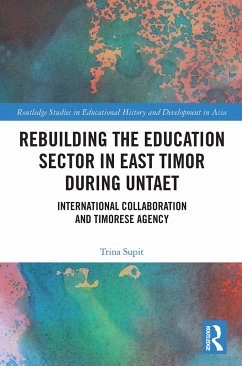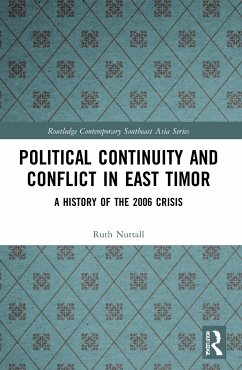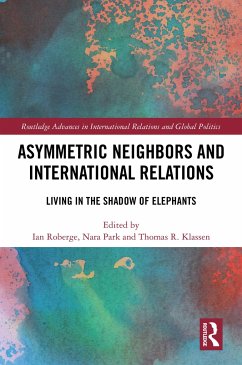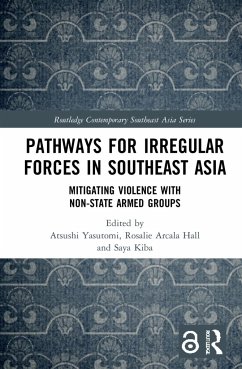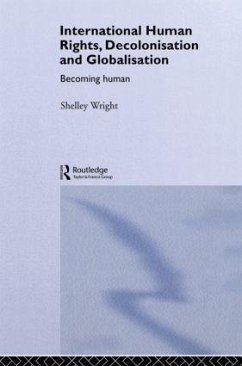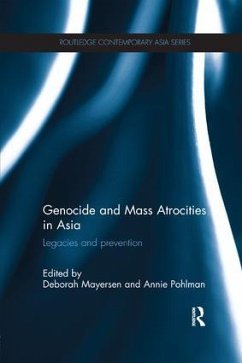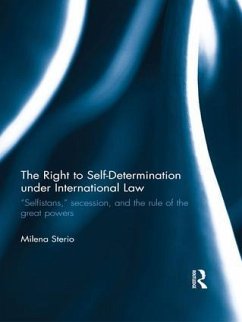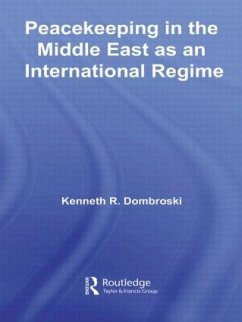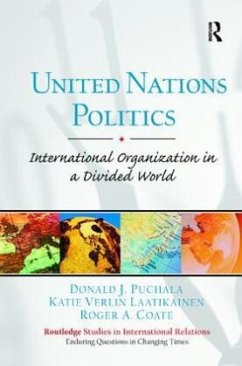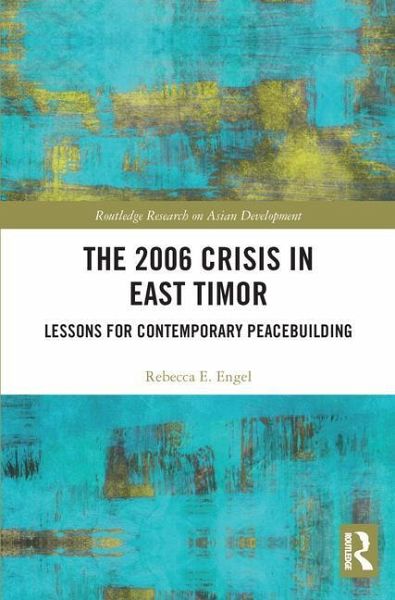
The 2006 Crisis in East Timor
Lessons for Contemporary Peacebuilding
Versandkostenfrei!
Versandfertig in 6-10 Tagen
45,99 €
inkl. MwSt.
Weitere Ausgaben:

PAYBACK Punkte
23 °P sammeln!
This book argues that the international community must share responsibility for contributing to the conditions that resulted in violent conflict in Timor-Leste, four years after it declared independence from Indonesia. Its failure to tailor interventions to Timor-Leste's specific political economy and conflict dynamics distanced the state from its citizens and undermined its capacity to forge a political settlement founded on a robust social contract.At a time in which conflict-affected states are receiving unprecedented attention and peacekeeping operations and humanitarian emergencies are be...
This book argues that the international community must share responsibility for contributing to the conditions that resulted in violent conflict in Timor-Leste, four years after it declared independence from Indonesia. Its failure to tailor interventions to Timor-Leste's specific political economy and conflict dynamics distanced the state from its citizens and undermined its capacity to forge a political settlement founded on a robust social contract.
At a time in which conflict-affected states are receiving unprecedented attention and peacekeeping operations and humanitarian emergencies are becoming increasingly complex, this book argues that radical changes are urgently required in the way the international community operates in these environments. The findings are rooted in an examination of the mechanisms used by international development actors in Timor-Leste between 1998 and 2006. In bringing together wide-ranging perspectives, the author shows that internationalactions cannot be separated from the local political and socio-economic context, demonstrating that interventions are never 'apolitical' and that peacebuilding must be intentional. Indeed, political settlements premised on a robust social contract should not be taken for granted anywhere. The impact of increasing disenfranchisement, mistrust in institutions and structural inequalities evident in the global North suggest that lessons from peacebuilding in Timor-Leste are relevant far beyond its shores.
This book is essential for students and researchers in the fields of development studies, international political economy, peacebuilding and conflict resolution, and for practitioners and policymakers striving to advance peace.
At a time in which conflict-affected states are receiving unprecedented attention and peacekeeping operations and humanitarian emergencies are becoming increasingly complex, this book argues that radical changes are urgently required in the way the international community operates in these environments. The findings are rooted in an examination of the mechanisms used by international development actors in Timor-Leste between 1998 and 2006. In bringing together wide-ranging perspectives, the author shows that internationalactions cannot be separated from the local political and socio-economic context, demonstrating that interventions are never 'apolitical' and that peacebuilding must be intentional. Indeed, political settlements premised on a robust social contract should not be taken for granted anywhere. The impact of increasing disenfranchisement, mistrust in institutions and structural inequalities evident in the global North suggest that lessons from peacebuilding in Timor-Leste are relevant far beyond its shores.
This book is essential for students and researchers in the fields of development studies, international political economy, peacebuilding and conflict resolution, and for practitioners and policymakers striving to advance peace.





